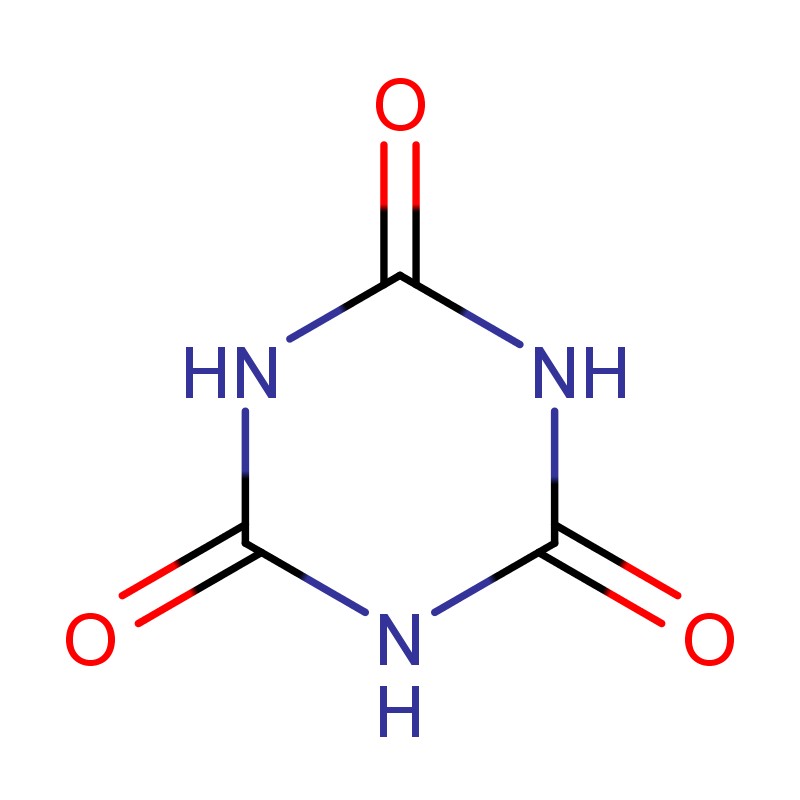
- English
- Español
- Português
- русский
- Français
- 日本語
- Deutsch
- tiếng Việt
- Italiano
- Nederlands
- ภาษาไทย
- Polski
- 한국어
- Svenska
- magyar
- Malay
- বাংলা ভাষার
- Dansk
- Suomi
- हिन्दी
- Pilipino
- Türkçe
- Gaeilge
- العربية
- Indonesia
- Norsk
- تمل
- český
- ελληνικά
- український
- Javanese
- فارسی
- தமிழ்
- తెలుగు
- नेपाली
- Burmese
- български
- ລາວ
- Latine
- Қазақша
- Euskal
- Azərbaycan
- Slovenský jazyk
- Македонски
- Lietuvos
- Eesti Keel
- Română
- Slovenski
- मराठी
- Srpski језик
How Does Cyanuric Acid Work and Why Is It Vital for Pool Water Balance?
Cyanuric Acid (CYA), often referred to as a stabilizer or conditioner, plays a crucial role in maintaining the effectiveness of chlorine in swimming pools and water treatment systems. Chemically known as 1,3,5-triazine-2,4,6-triol, cyanuric acid is a white, odorless, and slightly acidic compound that serves one main purpose: protecting chlorine from rapid degradation under ultraviolet (UV) sunlight.
Without cyanuric acid, chlorine levels in an outdoor pool can drop dramatically within hours under direct sunlight. CYA binds to chlorine molecules, forming a weak chemical bond that shields them from UV rays while still allowing enough free chlorine to disinfect water effectively.
In simple terms, cyanuric acid acts like sunscreen for chlorine — it extends chlorine’s lifespan and reduces the need for frequent additions of chlorine, saving both cost and maintenance time.
Key Chemical Properties
| Parameter | Specification |
|---|---|
| Chemical Formula | C₃H₃N₃O₃ |
| Molecular Weight | 129.07 g/mol |
| Appearance | White crystalline powder |
| Solubility in Water (25°C)** | 2.7 g/L |
| pH (1% Solution)** | 4.0 – 4.5 |
| Melting Point | 320°C (decomposes) |
| Stability | Stable under normal conditions |
| Common Uses | Pool water stabilizer, industrial disinfectant additive, bleaching agent intermediate |
Cyanuric acid is not consumed during normal pool operation; instead, it remains in the water, continuously protecting chlorine from photodegradation. However, excessive CYA levels can reduce chlorine’s sanitizing power. Maintaining the right balance between 30–50 ppm is considered optimal by most pool professionals and health authorities.
How Does Cyanuric Acid Work in Pool Systems?
The mechanism of cyanuric acid in pool chemistry is both fascinating and essential. Chlorine in water exists mainly as hypochlorous acid (HOCl), the active disinfectant that kills bacteria and algae. When exposed to UV sunlight, HOCl rapidly breaks down into chloride ions and oxygen, leaving the pool unprotected.
Cyanuric acid helps by forming a reversible bond with chlorine, creating chlorinated isocyanurates (a stable complex). These compounds slowly release free chlorine as needed, maintaining sanitation while minimizing loss.
Step-by-Step Functioning Process:
-
Stabilization: CYA combines with free chlorine (HOCl) to create a UV-resistant complex.
-
Controlled Release: When bacteria or contaminants enter the water, the complex releases active chlorine molecules to disinfect.
-
UV Protection: The complex absorbs UV energy, preventing chlorine from evaporating rapidly under sunlight.
-
Cost Efficiency: With less chlorine loss, pool owners spend less on chemicals while maintaining water clarity and hygiene.
In addition to pool water, cyanuric acid derivatives are also used in bleaching, disinfectant formulations, and industrial water treatment due to their controlled chlorine-releasing properties.
However, understanding the right dosage is critical. If the concentration exceeds 100 ppm, chlorine becomes less effective, leading to what professionals call “chlorine lock.” This condition prevents chlorine from sanitizing properly, resulting in cloudy or algae-filled water. The solution is often partial drainage and refilling to dilute the CYA level.
Applications and Product Specifications
Cyanuric acid has broad industrial and commercial applications. While its most well-known use is in swimming pool maintenance, it also plays a role in other chemical manufacturing processes.
Primary Applications
-
Swimming Pools & Spas: As a stabilizer for chlorine disinfectants.
-
Water Treatment Plants: Used to balance chlorine levels in municipal systems.
-
Bleaching Agents Production: Intermediate for chlorinated isocyanurates such as trichloroisocyanuric acid (TCCA) and sodium dichloroisocyanurate (SDIC).
-
Household Cleaners: Incorporated in disinfectant tablets and powders.
-
Industrial Cooling Systems: Helps maintain consistent chlorination and microbial control.
Typical Technical Parameters (Leach Standard Quality)
| Parameter | Typical Value |
|---|---|
| Assay (Purity) | ≥ 98.5% |
| Moisture Content | ≤ 0.5% |
| Granularity | 8 – 30 mesh |
| Heavy Metals | ≤ 10 ppm |
| Insoluble Matter | ≤ 0.1% |
| Packaging | 25 kg woven bag / drum |
| Shelf Life | 2 years (dry storage) |
To ensure optimal quality, Leach’s cyanuric acid undergoes strict quality control tests, including HPLC purity verification, pH stability analysis, and UV-resistance testing. Our formulation provides consistent chlorine protection while maintaining chemical stability under high-temperature and high-humidity conditions.
Storage and Handling Guidelines
-
Store in a cool, dry, and well-ventilated area.
-
Avoid direct exposure to sunlight and moisture.
-
Keep away from strong oxidizers or bases.
-
Always handle with protective gloves and goggles during use.
By following these guidelines, users can maintain the purity and performance of cyanuric acid for extended storage periods.
FAQs About Cyanuric Acid
Q1: How much cyanuric acid should I add to my pool?
A: The ideal range for cyanuric acid concentration is 30–50 parts per million (ppm). For outdoor pools receiving full sunlight, 40 ppm provides balanced UV protection without compromising chlorine activity. Add the chemical slowly and allow it to dissolve completely before testing. If your CYA level exceeds 100 ppm, partially drain and refill the pool to reduce concentration.
Q2: How often should I test cyanuric acid levels?
A: It’s recommended to test your pool’s cyanuric acid levels every two weeks during peak swimming season. Evaporation and water replacement can alter concentration over time. Accurate CYA management ensures chlorine efficiency and prevents unnecessary chemical costs.
Why Choosing the Right Supplier Matters
The performance of cyanuric acid heavily depends on purity, particle size uniformity, and moisture control. Low-grade materials can contain impurities that cause residue formation or inconsistent chlorine stabilization. When selecting a supplier, focus on:
-
High assay (≥98.5%) purity
-
Consistent granule size for uniform dissolution
-
Low moisture and insoluble residue levels
-
Reliable technical support and safety documentation
A trusted manufacturer ensures product traceability and quality assurance through batch testing and compliance with ISO and REACH standards.
At Leach, we are committed to delivering superior-grade cyanuric acid that meets global industrial and pool maintenance standards. Our production facilities utilize advanced crystallization and purification techniques, ensuring stability, solubility, and long shelf life.
Whether you are a pool chemical distributor, water treatment professional, or industrial formulator, Leach offers tailored packaging, technical support, and fast global delivery.
For inquiries or bulk orders, contact us today to learn more about our cyanuric acid solutions and how we can support your chemical supply needs.




